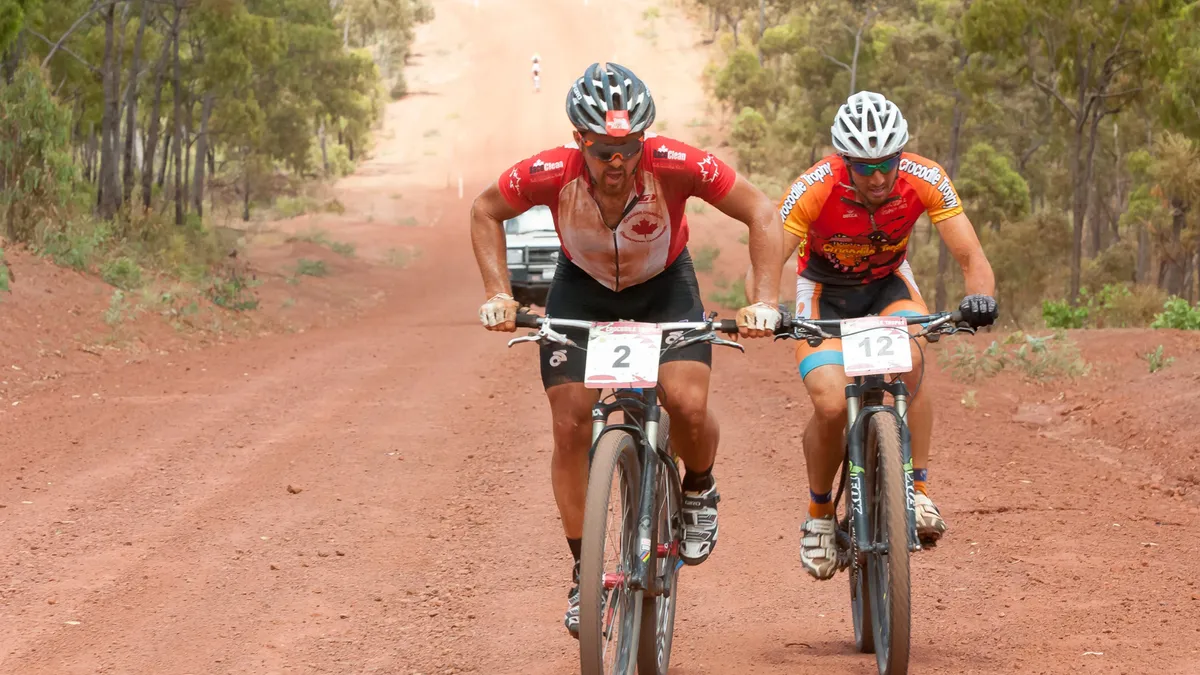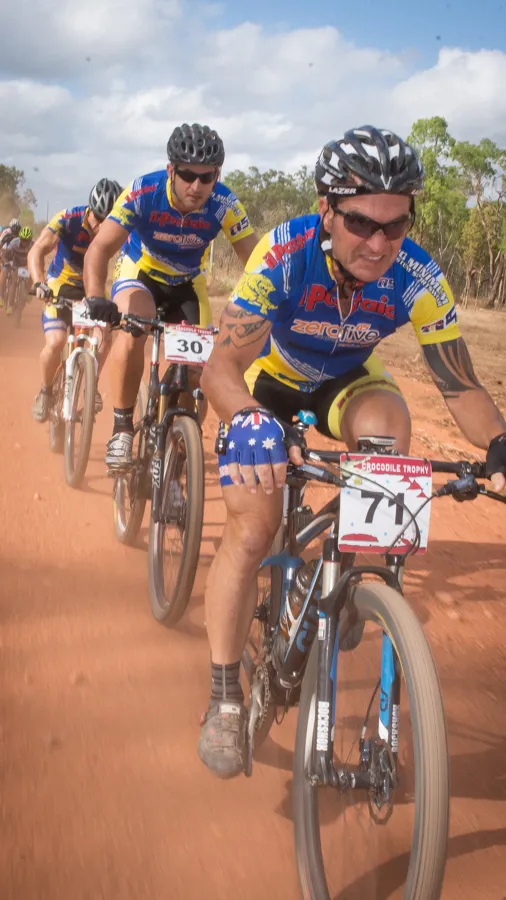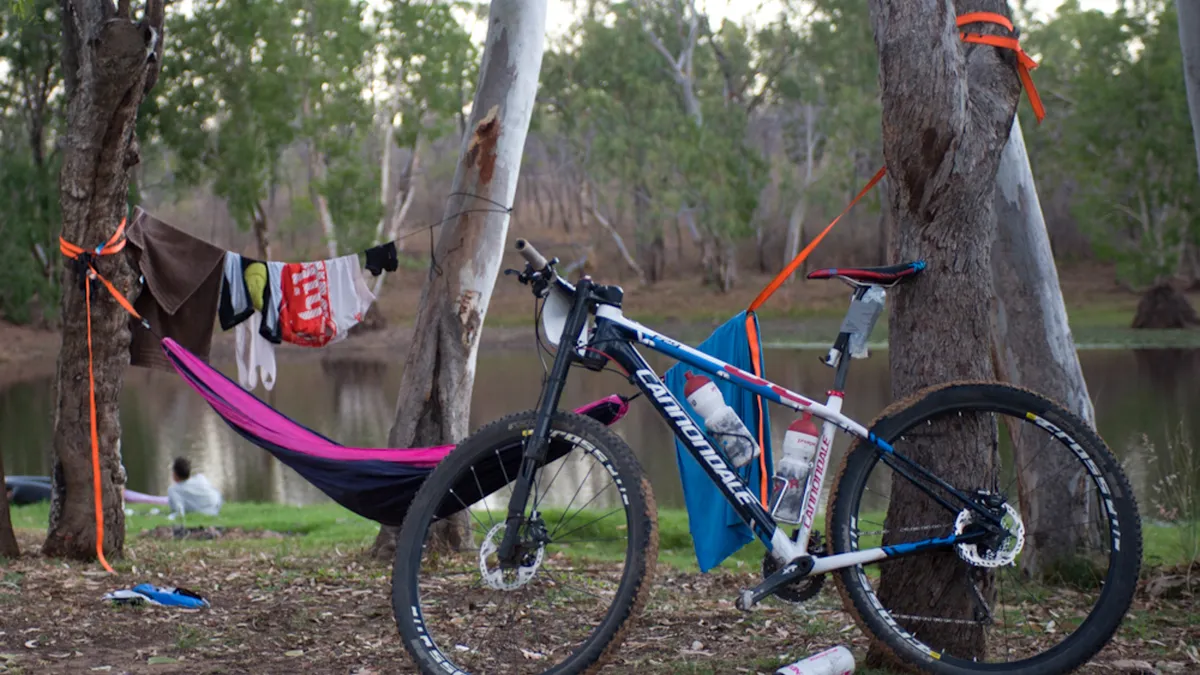As we discussed in our previous two articles on multi-day mountain bike racing bike setup and marathon nutrition, it’s important to be prepared for such epic adventures. After all, you want to enjoy yourself out there, rather than getting stuck in the wilderness having a miserable experience.
In this three-part series, we've spoken to the riders, mechanics and organisers of the Crocodile Trophy, a mountain bike stage race held annually in far North Queensland, to gather some insight into bike setup, nutrition and general preparation. This third and final piece will cover some final tips and tricks for ensuring you’re up for the task and helping you get through it.
This is by no means a complete answer to the near-endless list of questions regarding training or race preparation. But with a focus on some of the world’s hardest multi-day racing conditions, and insight from two top international riders, every cyclist should be able to benefit from the information below.
For 2014, the Crocodile Trophy gains UCI S1 classification and moves to a truer mountain biker’s course, with plenty of singletrack. Because of their harsh conditions, previous events have been proving grounds for training techniques and race tactics; the general feeling is that what works for the Crocodile Trophy should certainly suffice in less extreme environments.
Training for a multi-day mountain bike event
What's even more important than ensuring your bike is correctly set up? Making sure your body is up to such a physical challenge. It’s unlikely you’ll be able to replicate such back-to-back strenuous conditions in your training, but it’s important that you go into an event with the mental strength to know that you’re capable of it.
Cory Wallace, a mountain bike marathon professional, told BikeRadar, “Anyone can do a one-day event, but when it's a case of five to nine days that some of these events go on for, there’s just no replacement for putting in the time on the saddle. I really believe no matter where you want to finish, you just need the time in your legs.
“Long tempo rides of four to six hours is what you want to be doing leading up to the event. I back that up four to five times a week and from that I know I have the distance in my legs.”
Martin Wisata, a co-ordinator and competitor of the Crocodile Trophy, countered Wallace’s performance-focused view, claiming that it’s possible to finish these events on much less training.
“While 20- to 24-hour weeks on the bike will no doubt get you well prepared for races like the Croc, it’s just not sustainable for the majority of entrants who have full-time jobs and/or families,” Wisata said.
“Sure, we see a lot of suffering from people who don’t come prepared – those guys are spending seven to eight hours on a bike every day, it’s a tough event that way – but they generally do get through it.”
Wisata’s recommendation is to ride as much as possible, whenever time allows and that consistency is the key: "For many, that will mean commuting during the week to work and getting a long ride or two in on the weekend."
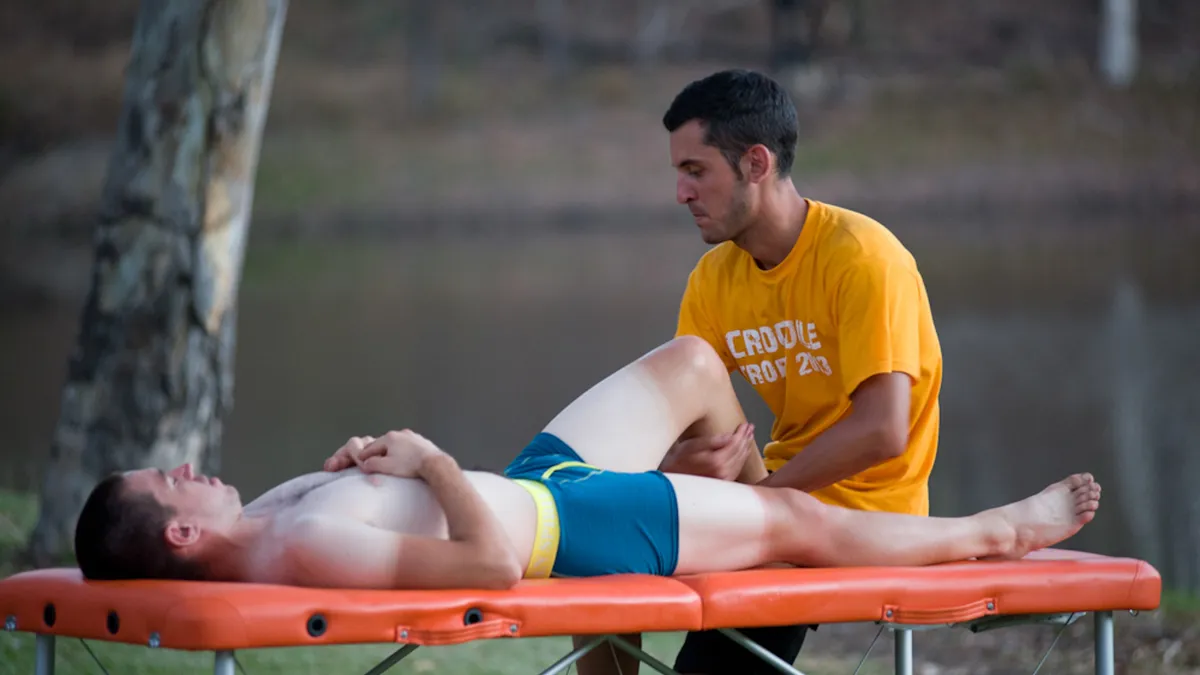
Being unprepared puts your body at risk to injury
Wallace added: “Injury avoidance is another big thing. If you’re under-trained, you’ll likely get hurt from abusing your body and over-reaching.”
Before you set yourself training goals, it’s important to understand the conditions you’ll be racing in. Some races will be more technically challenging, while others will be suited to riders who can just grind away on the road.
With this in mind, it’s a good idea to tailor your training to the conditions you’ll face – if you will be racing on lots of technical singletrack, be sure to practise your technique and work on your efficiency through corners and over trail obstacles.
Jason English, a five-time 24-hour solo mountain bike world champion and former Crocodile Trophy competitor, does just this in his training. “If I know the race is going to have lots of climbing, I’ll go out and find the longest, toughest climb in my area and repeat it until I get the elevation,” he said.
“The Croc can be really hot. I was training in arm and leg warmers, even when it was hot outside just to get a feel for how my body reacted in the heat. You need to get used to over-hydrating during your training and find out how you react to certain race foods after a few hours.”
In the thick of it
Once the racing starts, it’s too late to prepare your body – it becomes a game of survival as the race progresses.
“You need to know your fitness level, and pace yourself for that. Don’t go out too hard, if you’ve got it, save it for later in the race when your other competitors will be struggling,” said Wallace.
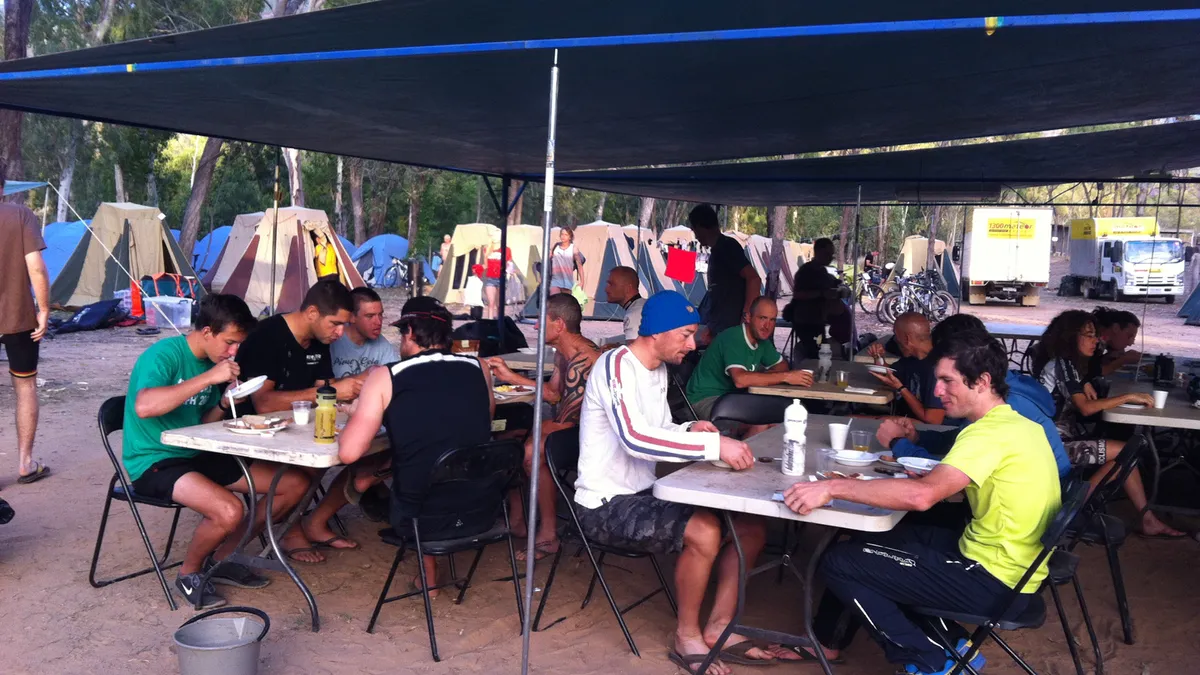
For many, the like-minded social side of multi-day events is a real draw
While the likes of Cory Wallace and Jason English fill the podium spots, guys like Martin Wisata are generally racing for personal achievement and the camaraderie among far larger groups of equally-minded participants.
“Races like the Croc are tough, no matter where you’re racing, so make friends in the peloton. It’s better to suffer with a friend, then with someone you don’t want to be around. In open sections of the race you can use each other for drafting and mental motivation. Find people you can work with, even if it’s with a friendly competitive nature,” said Wisata.
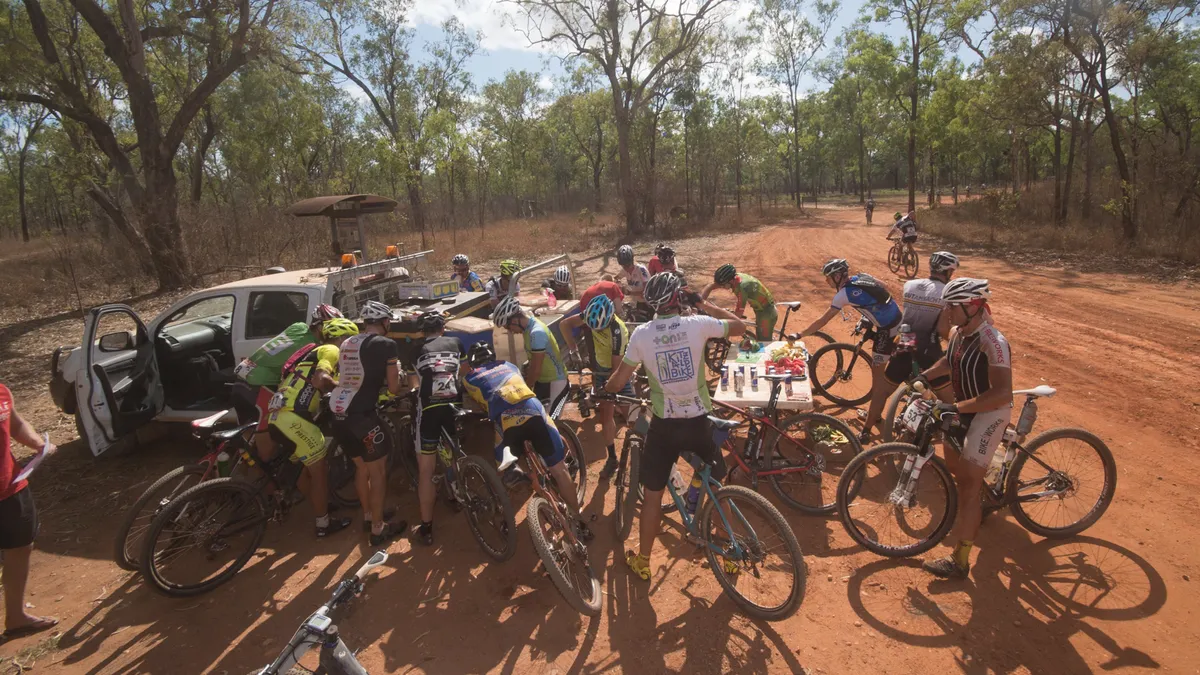
Just like in road racing, feeding zones aren't a place to attack
He added: "Attacking at depots and poor group etiquette is not a good way to make friends. Also, if you’re a bad descender, don’t plug the trail on the descent knowing it’s the only way to stay with your competitors, that’s not fair and it won’t earn you respect in the group.”
“I’ve made some really strong friendships out of these events. While I take my racing seriously, there’s no point being ‘that guy’.”
Regardless of what event you plan to enter, knowing your bike and body are prepared will make the experience an enjoyable one. After all, when spending so much money and energy, why not make the most of it?
This is the final article in this series, which that focuses on general tips for marathon events. BikeRadar recently visited Cairns and rode some of the trails that the 2014 Crocodile Trophy will go through, including the start at Smithfield, Atherton and the end at Port Douglas, where the race concludes after nine days.
